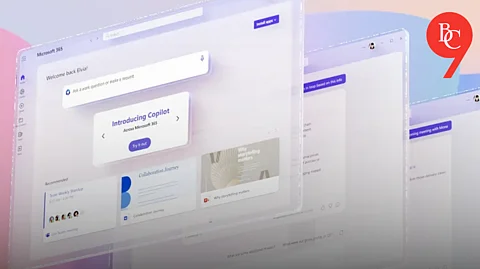

Microsoft is preparing a major update to its Copilot AI assistant: a human-like face that will visually age as users continue to engage with it. This intriguing development was revealed by Microsoft’s AI chief, Mustafa Suleyman, in an exclusive interview that has generated widespread buzz in the tech community.
Since the launch of Copilot, Microsoft has positioned its AI assistant as a powerful productivity partner for both enterprise users and everyday consumers. However, the next phase goes beyond words on a screen or disembodied voices; Copilot will soon have an on-screen "face": a dynamic, realistic digital avatar designed to express emotion and, remarkably, show signs of aging the longer it accompanies its user.
Suleyman explained, “We want Copilot to feel like a true companion, not just a tool. Giving it a face one that grows and ages with you creates a sense of shared journey and personalization over time.” He emphasized that this feature, currently in prototype, aims to humanize the AI experience and make technology more approachable for everyone.
The new Copilot avatar isn’t a static image but an advanced digital persona powered by cutting-edge generative AI and animation technology. When users first activate Copilot, its face will appear young, fresh, and energetic. As users spend more time and share their lives with Copilot, the face will subtly develop signs of aging, maturity, and emotional expression wrinkles, gray hair, and even mood changes reflecting conversations and usage history.
According to Microsoft, users will have some control over their Copilot’s appearance, potentially customizing features or “resetting” the aging process, though core elements of the evolving face will remain consistent to foster long-term connection.
Mustafa Suleyman, who previously co-founded DeepMind before joining Microsoft, believes that AI is rapidly evolving into a ubiquitous part of daily life. Making AI more personable and emotionally resonant is essential for user trust and engagement.
Psychologists and technology experts have long noted that people feel more comfortable sharing information and collaborating with entities that show signs of understanding and emotion. Microsoft hopes that a personable Copilot will boost user productivity and satisfaction while helping people feel less isolated when working or learning digitally.
The announcement has sparked conversation in both the tech sector and among general users. Some praise Microsoft’s bold innovation, predicting it will set a new standard for AI personal assistants. Others question the implications for privacy and emotional dependency on technology, renewing debates about the limits of anthropomorphism in AI.
The aging avatar feature is expected to roll out to select Copilot users in 2025, with broader availability later. Microsoft promises that, in addition to visual enhancements, privacy and data security will remain a top priority, ensuring user data is safe as AI becomes more deeply integrated into our daily routines.
